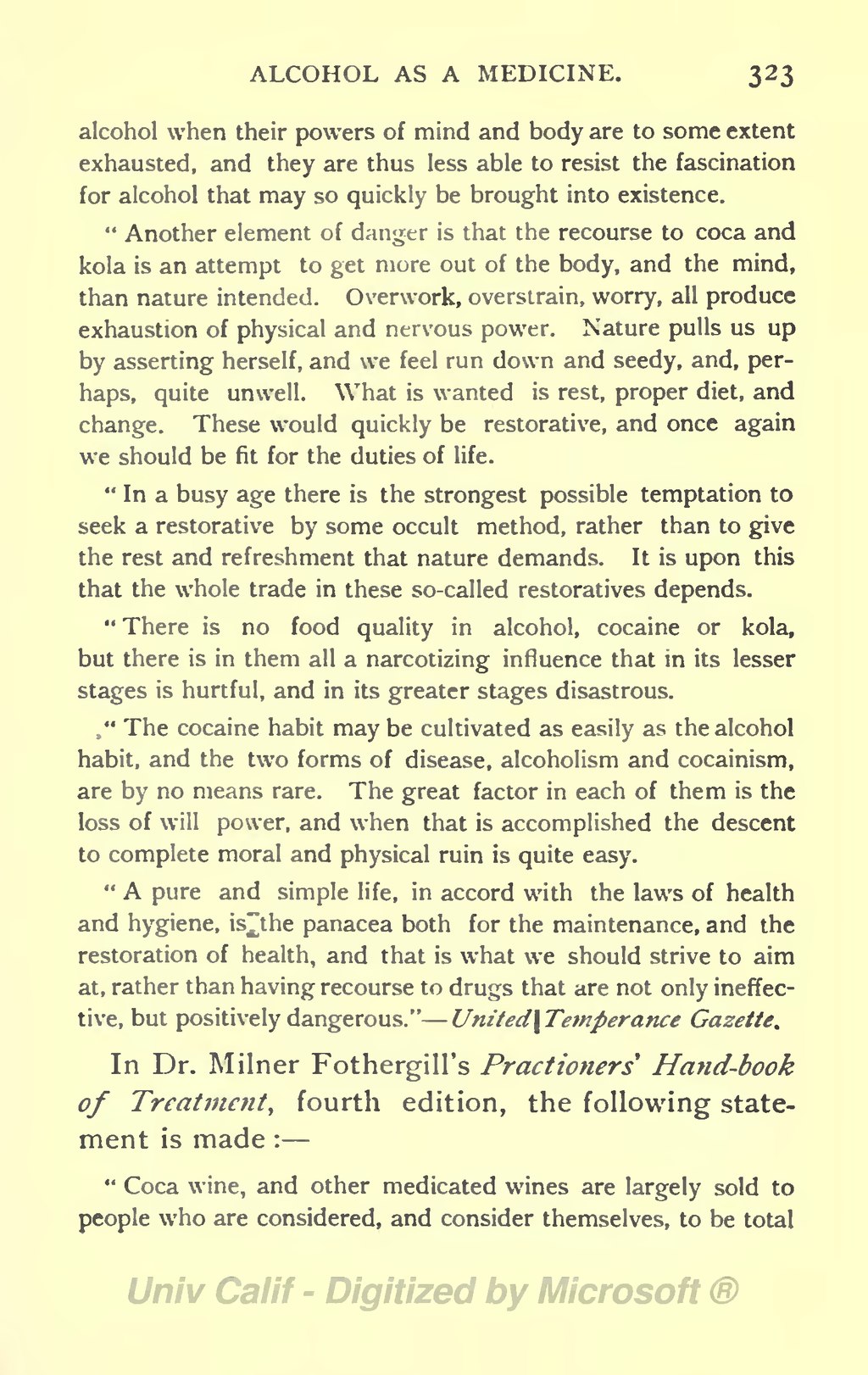alcohol when their powers of mind and body are to some extent exhausted, and they are thus less able to resist the fascination for alcohol that may so quickly be brought into existence.
"Another element of danger is that the recourse to coca and kola is an attempt to get more out of the body, and the mind, than nature intended. Overwork, overstrain, worry, all produce exhaustion of physical and nervous power. Nature pulls us up by asserting herself, and we feel run down and seedy, and, perhaps, quite unwell. What is wanted is rest, proper diet, and change. These would quickly be restorative, and once again we should be fit for the duties of life.
"In a busy age there is the strongest possible temptation to seek a restorative by some occult method, rather than to give the rest and refreshment that nature demands. It is upon this that the whole trade in these so-called restoratives depends.
"There is no food quality in alcohol, cocaine or kola, but there is in them all a narcotizing influence that in its lesser stages is hurtful, and in its greater stages disastrous.
"The cocaine habit may be cultivated as easily as the alcohol habit, and the two forms of disease, alcoholism and cocainism, are by no means rare. The great factor in each of them is the loss of will power, and when that is accomplished the descent to complete moral and physical ruin is quite easy.
"A pure and simple life, in accord with the laws of health and hygiene, is the panacea both for the maintenance, and the restoration of health, and that is what we should strive to aim at, rather than having recourse to drugs that are not only ineffective, but positively dangerous." United Temperance Gazette.
In Dr. Milner Fothergill's 'Practioners' Hand-book of Treatment, fourth edition, the following statement is made:—
